We've just got back from four days in Fuzhou. The main reason for this was a chance to see Chinese Crested Terns at the mouth of the Min River.
Chinese Crested Tern was thought extinct, and described as such in my 1993 copy of "A Field Guide to the Waterbirds of Asia" The species was rediscovered by Taiwanese Ornithologists on the Matsu Islands (in the Taiwan Straits) in the summer of 2000. (Described in OBC Bulletin 32)
More recently, these rare birds have been regularly found at the mouth of the Min River in Fujian Province, about 30 km west of the Matsu Islands. Some Hong Kong friends had seen them in early June, so we went too, ably guided by LIN Chen of the Fujian Birdwatching Society.
The Fujian Bird Watching Society would be pleased to guide more visitors (both Chinese and foreign) to the Min River Estuary and other sites in the province. Their intent is to demonstrate the importance of Chinese Crested Tern to local officials and to raise funds for more more surveys of the Fujian coastline. Anyone interested in a visit may contact English-speaking LIN Chen (林晨) "Forest Morning" - of the FJBWS at email :buguy@163.com; <332622060@qq.com>
or Mobile (86)-13799370893 for more details.

"Follow my leader" across the sandbanks...
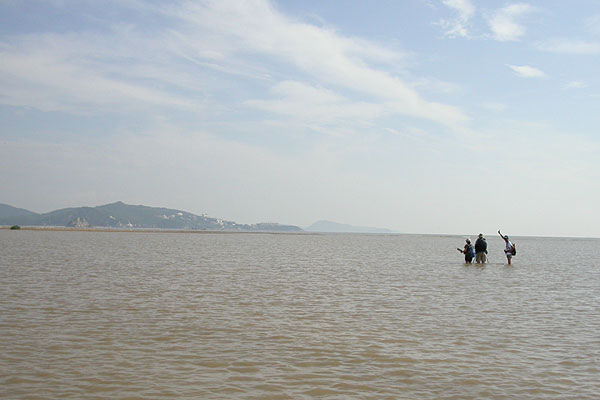
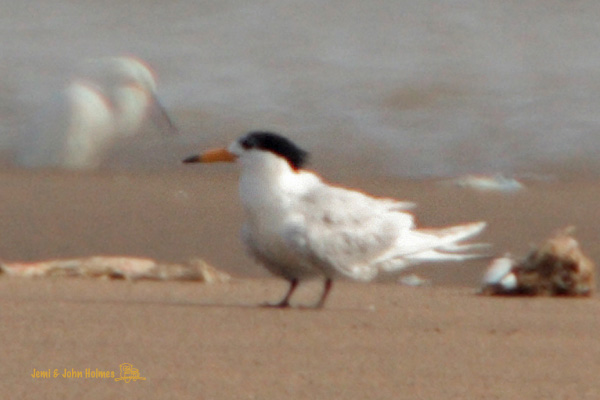 Chinese Crested Tern -smaller and paler than Great Crested, with a dark tip to the bill
Chinese Crested Tern -smaller and paler than Great Crested, with a dark tip to the bill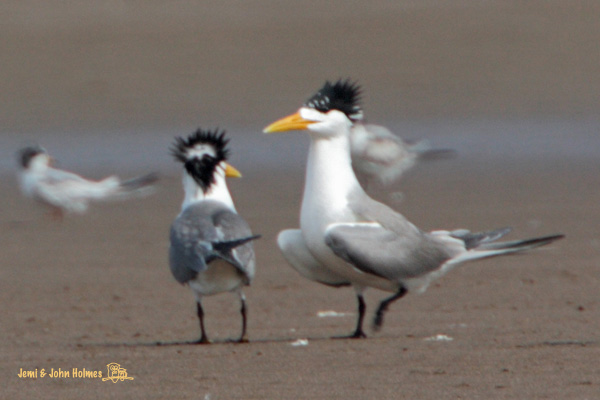 Greater Crested Terns were strutting about, and mating, too.
Greater Crested Terns were strutting about, and mating, too.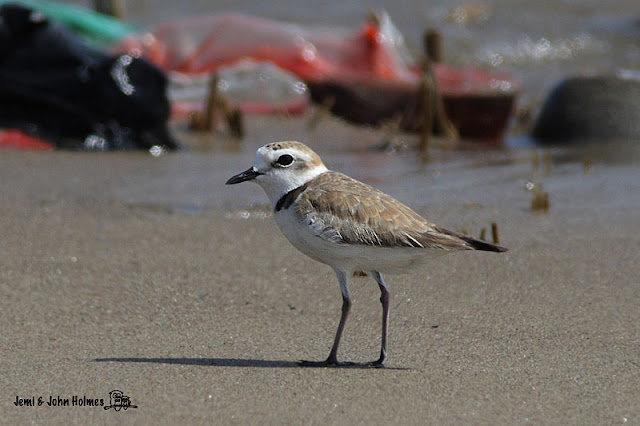 "White-faced" Plover
"White-faced" Plover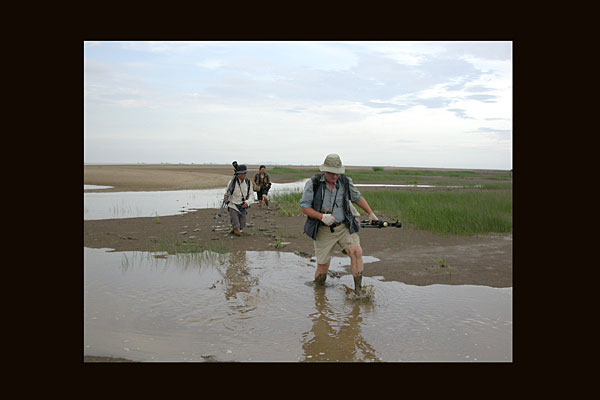


Is that Pith helmet you are wearing, JH?
ReplyDeleteCertainly not! You must have mistaken me for some other old colonialist!
ReplyDeletehttp://www.fjbirds.org/bbs/viewthread.php?tid=9101&extra=&page=1
ReplyDeleteThis poor Chinese Crested Tern, has a piece of plastic tube stuck to its lower mandible. It has drawn the attention of birders around the world to their situation.
Hope this bad news will urge an example of cross-striats co-operation to better protect the breeding ground and habitats of this species, so they can avoid the threat of extinction!